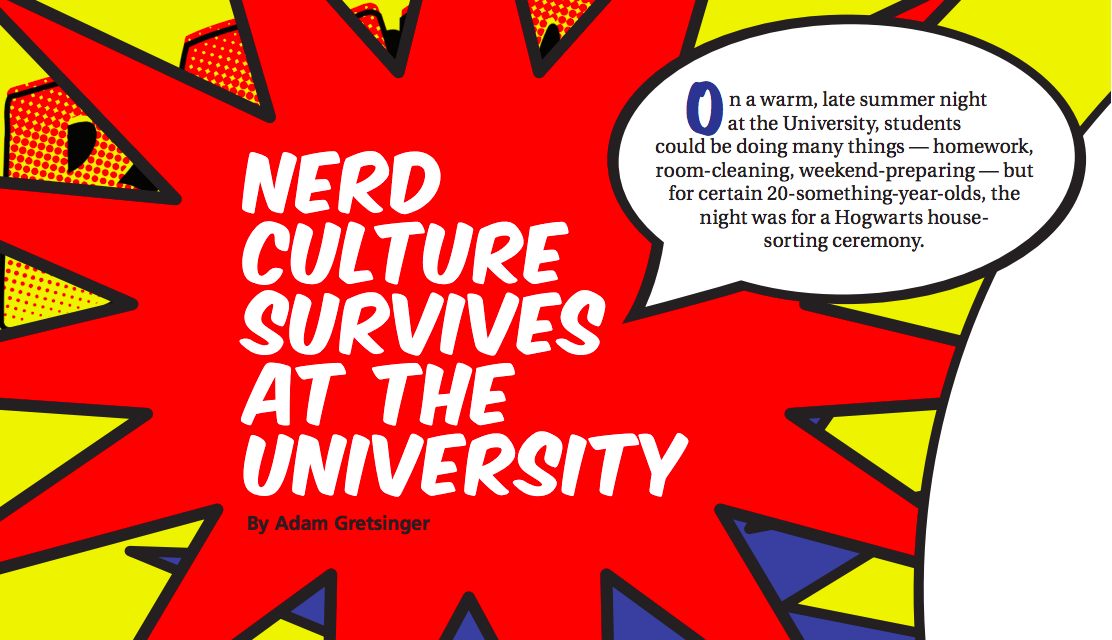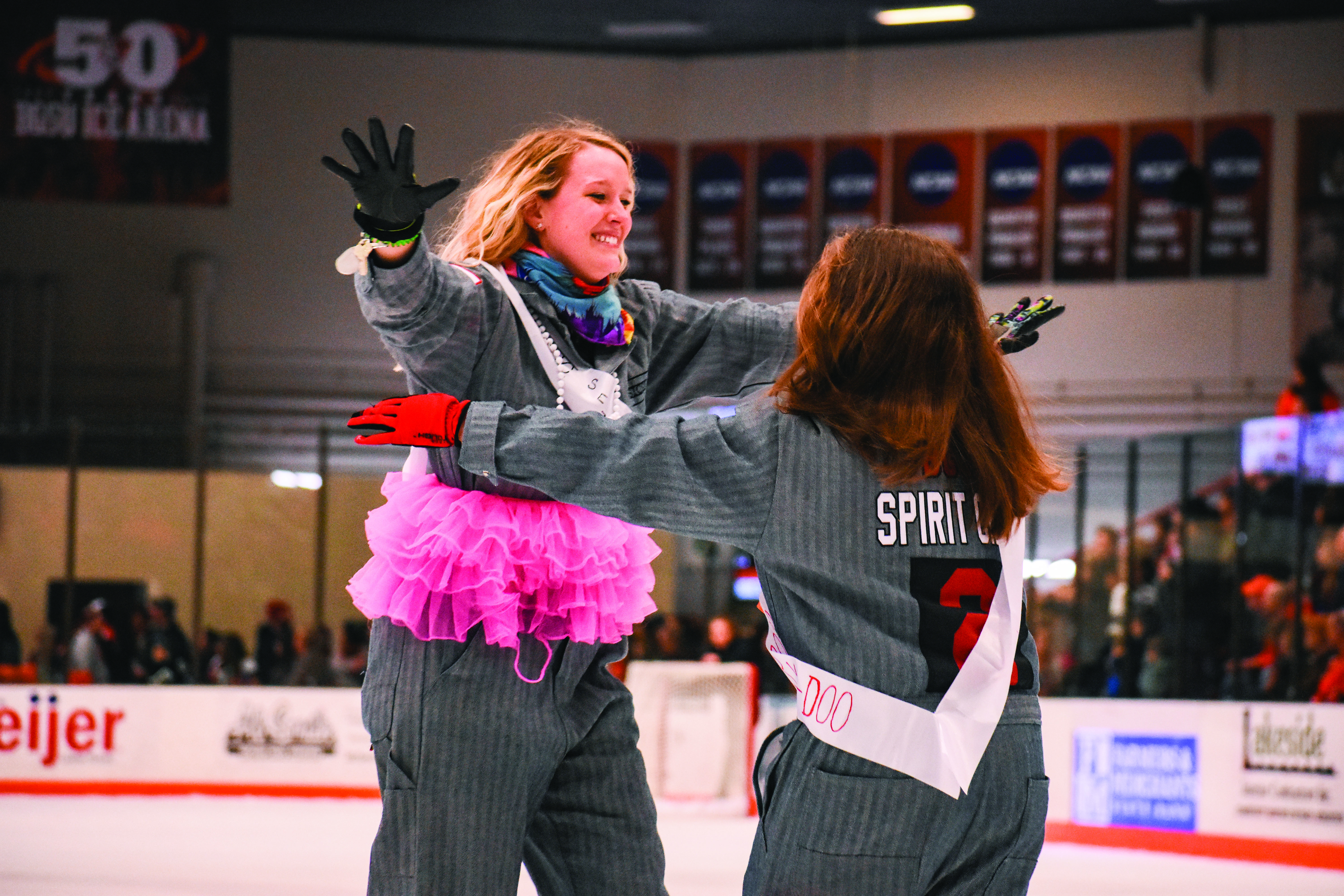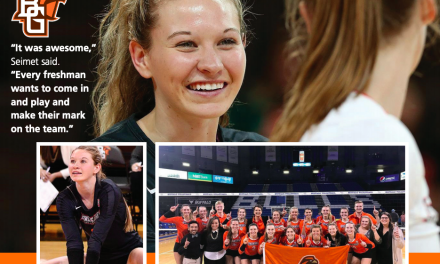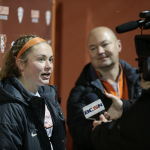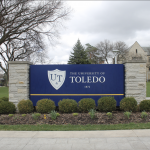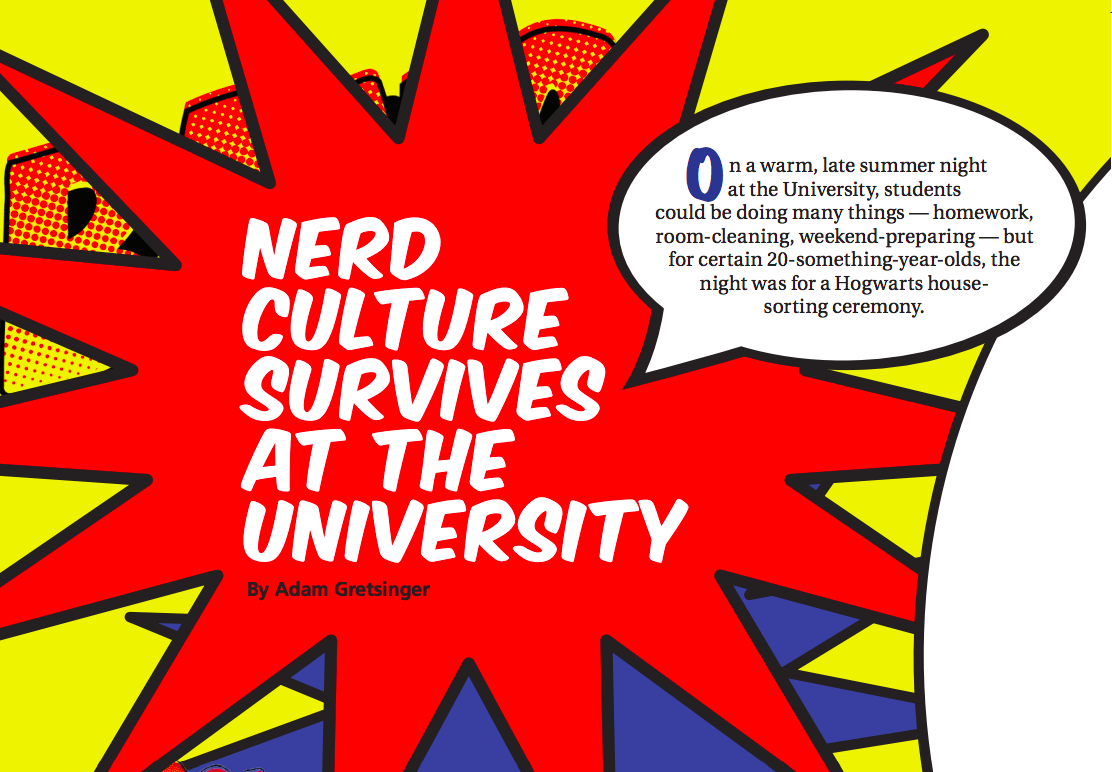
Fans and Nerds Dedicated to Our Media invited students from around the school to attend its first meeting on Aug. 30. There, it allowed people to discuss their favorite media and participate in a mock sorting ceremony as seen in the “Harry Potter” series.
It would then invite participants to engage in later meetings at the same time on Thursdays to talk, take quizzes, win prizes, play games and create content related to their favorite media. This includes both internet video content and T.V. shows, action films and comic books, board games and cartoons. “Nerd Culture” is the name of the game here.
The University does not lack groups that focus on more underground interests. Falcon ESports, Bowling Green Gaming Society, Bowling Green Pokemon Scene and Game and Anime Music Ensemble among them. Anime in Northwest Ohio, focusing on both Japanese comics and cartoons, is even large enough to host an annual convention on campus in the spring semester.
Hundreds of attendees and vendors come every year to participate in the festivities. The difference between them and FANDOM is the breadth of interests the latter looks to represent.
A recent poll put out on the organization’s Facebook asked members to call out their favorite fandom, providing 24 different options to choose from, 16 of which were individual brands. Other categories included musicals, dinosaurs and YouTubers.
“Nowadays, there’s so many different forms of media” so limiting the group to just books or movies was not viable, organization treasurer Amanda Anderson said. Anderson, a fifth year marine biology major, said she had initially hesitated to join in her freshman year because she thought her interest in just the Hunger Games and not other media represented at the time, would lead to hate from other members.
However, after some encouragement from friends she decided to join her next year. “No matter what you like, we will try to make a spot for you,” she said. The organization was not always so wide-reaching in scope, however.
“No matter what you like, we will try to make a spot for you.”
— AMANDA ANDERSON, FANDOM Treasurer
FANDOM came to life initially as BG Marauders, a student organization exclusively for Harry Potter fans in 2010. As the group took in more members, its managers saw just how much its members loved media outside of Harry Potter, and they began to consider the possibility of expansion.
This led to the foundation of the organization’s current name in 2014. The group’s banner used at public recruitment events at the time reflected both timeless classics like J. R. R. Tolkien’s work and more timely ones like Benedict Cumberbatch’s “Sherlock” series. The group, however, does shy away from organizing too much activity around other established groups’ interests like anime and
Pokemon, so as to not “step on their toes,” according to Anderson. Instead, FANDOM hosts D.I.Y. escape rooms, civil discussions about common debates (i.e. Is D.C. better than Marvel Comics?) and game night collaborations with Gaming Society.
The main appeal of the group is its ability to provide a safe gathering space for its members once a week. Anderson said the most fulfilling aspect of her job in the executive board was “knowing that you’re giving a platform to a bunch of different people.” Though these organizations have been working to provide a positive view of nerd culture at the University today, that culture’s definition is constantly changing and never unanimous in the public world.
ESPN airs tournaments of major competitive video games like “Overwatch” and “Fortnite” on television. Marvel’s multi-part film series rewards rabid fans for paying attention to otherwise unpopular characters from comic books with films like “Ant-man” and “Thor.”
On the other hand there is a negative reputation of these subcultures among the greater society. A 2014 Forbes article called nerd culture “authoritative” and “obnoxious” following negative reactions to a bad “Suicide Squad” Rotten Tomatoes score and called reactions to the recent “Ghostbusters” film’s female casting a sign of nerds’ general lack of tolerance and blind traditionalism.
Nerd culture has also been viewed as dangerous. Death threats were sent to “The Last Jedi” director Rian Johnson following the film’s release, leading to a media condemnation of the fanbase. Anderson maintained her group understands its members do not represent that type of rabid fandom, however.
“Members know what we are about,” she said. Instead, she said the group heavily leaned into its identity as a LGBTQ+ friendly space, one in which only one executive member was both straight and cisgender. Anderson, who is pansexual, said the primarily female-identifying demographics worked to counteract these claims of nerd culture as a toxic one. No matter what you like, we will try to make a spot for you.
“The group (FANDOM) heavily leaned into its identity as a LGBTQ+ friendly space.”
“We don’t really care what outside people think,” she added. The group looks to collaborate with other nerd-interest groups through the rest of the year, including team-ups with G.A.M.E. and a planned “nerd homecoming” later next semester for new and old members.

